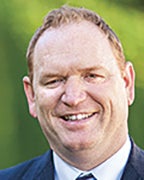The state of mental health care in Mississippi
Published 11:10 am Wednesday, June 7, 2017

- John Damon
For many years, there has been a strong national movement to serve children and families in their homes and communities and not in “institutionalized care.” This is a movement Canopy Children’s Solutions has supported and advanced both nationally and in Mississippi.
As the immediate past president of the National Association of Children’s Behavioral Health, we have been on the front lines to design and deliver state-of-the art community-based alternatives to residential treatment.
Mississippi led the nation through our Mississippi Youth Programs Around the Clock (MYPAC) which offers home and community-based alternatives to psychiatric residential treatment facilities. Georgetown University filmed a video series on the success of MYPAC and presented it to US Congress as an ideal model of care in our country.
Whenever possible, Canopy delivers home and community-based services in all 82 counties across Mississippi, and can say without hesitation that every child should be served in their own home, school and community. Those two words are critical “whenever possible.”
Between our psychiatric residential treatment facilities in Jackson and on the Gulf Coast, and our diagnostic and evaluation shelters in Hattiesburg and Vicksburg, we serve over 100 children a day in some form of 24-hour care. However, for every child we serve in 24-hour care, we serve 16 in their own homes and communities.
Why is this important? See, we are not just a provider of mental health, but an advocate for children. The headline discussions around “de-institutionalizing” the mental health system are the right discussions; however, we must learn from the physical healthcare system model.
Every decision for where someone is provided care must contain one key premise — what is in the best interest of the patient? In the physical healthcare system, we have emergency rooms, ICUs, surgical suites, critical care units AND a full array of less intense services in our communities such as outpatient clinics, rehabilitation clinics, outpatient surgery centers, and home health.
For some reason, we apply a different standard to mental health models. We cannot build a comprehensive system of care for mental health that leaves off the equivalent of the emergency room, ICU, surgical suites. We would never tolerate that for physical health, we must not tolerate it for mental health.
The premise upon which we seek to reform our mental health system must not be ideological, but rather what is in the best interest of the patient. Those suffering from mental health challenges should have the same array of mental health options available that we expect in our physical healthcare system. Sadly, this is not the case. Patients with private insurance have very limited options despite national efforts towards mental health parity.
Now is the time to engage in the larger healthcare discussion occurring in our nation and demand that we break down the artificial silos that have perpetuated not only stigma, but limit access to the care you need, when you need it, and where you need it.
The early Greeks believed that the mind and body are distinct and separable. The Greeks were wrong — there is no mind body dualism, and there should be no dualism in our healthcare system. This results in a poor design for mental health care in our nation, and certainly here in Mississippi.
John Damon is CEO of Canopy Children’s Solutions. For more information about mental health solutions, visit Canopy Children’s Solutions’ website at mycanopy.org or call a Care Coordinator toll free at 800-388-6247.





